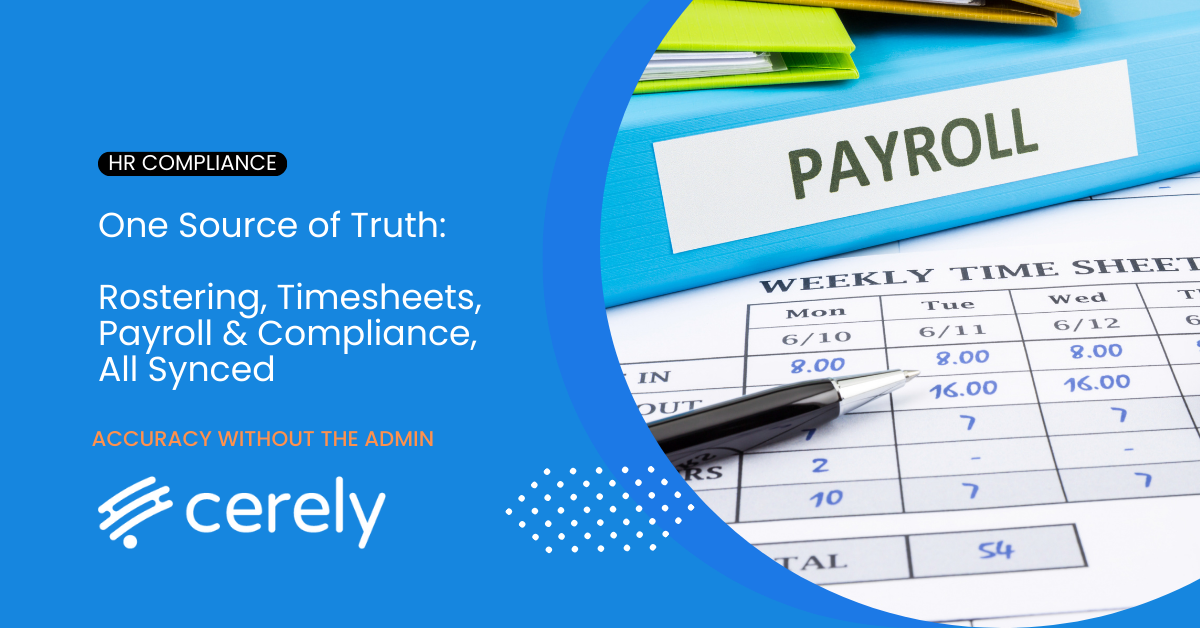The security industry continues to face a major challenge: keeping good guards.
High turnover affects not just internal operations, but also client satisfaction, contract performance, and brand reputation. Replacing staff is expensive, time-consuming, and disruptive.
But here’s the good news — most of the reasons guards leave are avoidable. The key is understanding the root causes and putting better systems in place.
Below, we break down the most common reasons guards resign — and how security businesses can improve retention by addressing them head-on.
1. Overworked With No Work-Life Balance
Burnout is real. Many guards are rostered on with little notice, asked to fill last-minute gaps, or stretched across back-to-back shifts.
Security work is already high-pressure. Without a balanced, predictable schedule, morale and performance take a hit.
Fix it with:
- Smarter rostering tools that balance workloads
- Adequate notice for shift changes
- Real-time visibility over hours worked to prevent fatigue
2. Not Enough Shifts or Inconsistent Hours
The flip side of burnout? Under-scheduling. Many casual guards can’t rely on their income due to inconsistent hours or being overlooked in favour of others.
Unclear availability tracking and manual rostering can result in unfair or inconsistent shift allocation.
Fix it with:
- Automated availability tracking
- Skill-based shift allocation
- Fair, transparent scheduling practices
3. Constant Payroll Errors or Delays
Few things damage trust faster than getting underpaid — or paid late.
From incorrect award rate application to manual timesheet issues, poor payroll processes make staff feel undervalued and frustrated.
Fix it with:
- Live timesheet data and award interpretation
- Automated payroll with full accuracy
- Mobile access for guards to view pay and shift history
4. Lack of Recognition and Positive Feedback
Many guards say they only hear from management when something goes wrong. That silence creates disengagement.
Recognition doesn’t require a big budget. A simple thank you, shoutout, or public acknowledgment can go a long way.
Fix it with:
- Regular feedback loops and positive reinforcement
- Team recognition moments (meetings, shoutouts, socials)
- Celebrating wins — big or small
5. Poor Communication and Support
When guards feel like they’re on their own — unsupported, unheard, or out of the loop — they start looking elsewhere.
This is especially true when issues aren’t addressed promptly or when leadership is out of reach.
Fix it with:
- Clear communication channels between guards and management
- Quick response to concerns or issues
- Regular check-ins — not just when something goes wrong
6. Being Assigned to Sites They’re Uncomfortable With
Not all guards are suited to all sites. Placing someone in a sector they’re not trained for or confident in puts both the guard and the client at risk.
Fix it with:
- Understanding individual guard preferences and experience
- Matching guards to roles and sectors where they can perform well
- Providing optional training or support where needed
The Bottom Line: Retention is Operational, Not Just Cultural
Security guards don’t leave because they dislike security — they leave because the experience is inconsistent, disorganised, or unsupported.
When businesses invest in systems that improve communication, automate admin, and create fairness and visibility across the board, retention improves — and so does overall performance.
Cerely helps security businesses:
- Roster smarter and fairer
- Track shifts, costs, and fatigue in real time
- Eliminate payroll errors
- Improve team communication and transparency
Better systems build stronger teams.
Want to keep your best guards?
Request a demo and see how Cerely can help.



